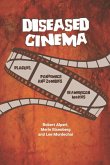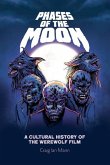American movies about infectious diseases have reflected and driven dominant cultural narratives during the past century. These movies - both real pandemics and imagined zombie outbreaks - have become wildly popular since the beginning of the 21st century. They have shifted from featuring a contained outbreak to an imagined containment of a known disease to a globalized, uncontainable pandemic of an unknown origin. Movie narratives have changed from identifying and solving social problems to a despair and acceptance of America's failure to fulfil its historic social contract. Movies reflect and drive developments in American capitalism that increasingly advocates for individuals and their families, rather than communities and the public good. Disease movies today minimize human differences and envisage a utopian new world order to advance the needs of contemporary American capitalism. These movie narratives shaped reactions to the outbreak of Covid and reinforced individual responsibility as the solution to end the pandemic.
Dieser Download kann aus rechtlichen Gründen nur mit Rechnungsadresse in A, B, BG, CY, CZ, D, DK, EW, E, FIN, F, GR, HR, H, IRL, I, LT, L, LR, M, NL, PL, P, R, S, SLO, SK ausgeliefert werden.









